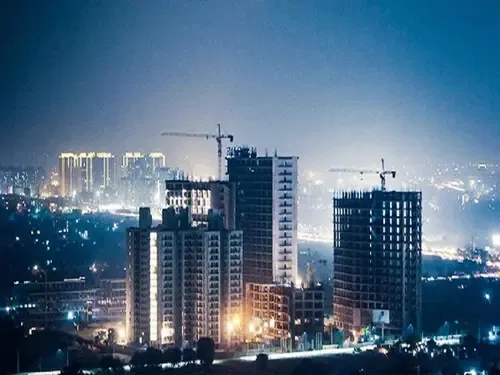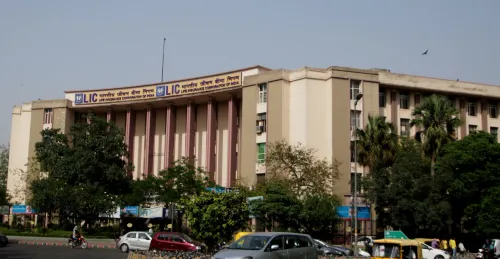Can India’s Real Estate Sector Reach 10 Trillion Dollars by 2047?

Synopsis
Key Takeaways
- India's real estate sector is set for exponential growth.
- Projected value to reach 5-10 trillion dollars by 2047.
- Government reforms are driving this transformation.
- Urbanization will significantly impact residential spaces.
- Infrastructure development is essential for connectivity.
Gurugram, Nov 6 (NationPress) The real estate sector in India is on the verge of an extraordinary transformation, with expectations to escalate dramatically—from approximately 0.3 trillion Dollars currently to an astounding 5-10 trillion Dollars by 2047, as outlined in a recent report by Colliers-CII.
This ongoing growth positions real estate as a pivotal element of India’s economic elevation, potentially accounting for 14–20 percent of the GDP by 2047, the report notes.
Titled "Real Estate @2047: Building India’s Future Growth Corridors", the report underscores imminent trends and a broad growth theme across essential segments—residential, office, retail, industrial & warehousing, alongside emerging asset classes like senior living, co-living, and data centers.
These trends are largely driven by robust support from government reforms and policy initiatives, as well as structural demand factors such as rapid urbanization, demographic changes, infrastructure enhancements, technological innovations, and sustainability objectives. Collectively, these growth catalysts are generating a multiplier effect, driving employment and demand across real estate sectors, attracting institutional investments, and revealing new growth corridors throughout the nation, as the report elaborates.
Within the real estate domain, the residential segment is projected to experience the most significant impact from swift urbanization and changing demographics, particularly in affordable, senior, and co-living sectors. In contrast, commercial and industrial sectors are expected to benefit from improved infrastructure connectivity, digital advancements, and green regulations, which will aid the decentralization of office centers and manufacturing hubs in Tier II & III cities. Simultaneously, technological progress, especially in AI, will facilitate the expansion of data centers and smart city frameworks, the report further indicates.
Speaking at the CII event, Harleen Kaur, Deputy Secretary at the Union Ministry of Road Transport and Highways, remarked: "India’s infrastructure growth is altering the real estate landscape, opening new growth corridors and transforming Tier II & III cities. Real estate and infrastructure are two critical sectors that will mutually reinforce one another. Expressways and industrial corridors will increasingly improve connectivity—transforming land use in surrounding areas, expediting urban development, and creating economically viable hubs."









